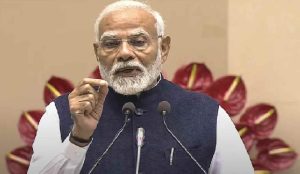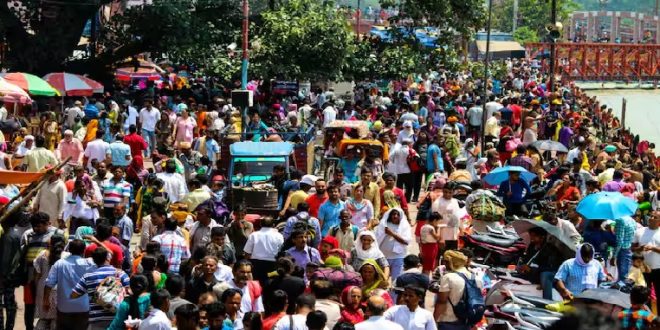23-08-2024
Bureau Report + Agencies
NEW DELHI: India is likely to begin conducting a long-delayed population census in September, two government sources said, as Prime Minister Narendra Modi looks to plug important data gaps in his third term after years of criticism.
India’s once-a-decade census was due to be completed in 2021 but was delayed because of the COVID-19 pandemic. It will take about 18 months to complete the new survey after it begins next month, two government sources directly involved in the matter said.
 Economists within the government and outside have criticised the delay in the latest census as it impacts the quality of many other statistical surveys including economic data, inflation and jobs estimates.
Economists within the government and outside have criticised the delay in the latest census as it impacts the quality of many other statistical surveys including economic data, inflation and jobs estimates.
At present, most of these data sets – and government schemes based on their results – are based on the last population census released in 2011.
The Ministry of Home Affairs, which takes the lead in conducting the census, and the Ministry of Statistics and Programme Implementation have drawn up a timeline and are aiming to release results by March 2026, covering a period of 15 years, the officials said.
The final nod to start the process from Modi’s office is awaited, one of the two officials said.
According to a United Nations report released last year, India overtook China as the world’s most populous nation last year.
The home affairs and statistics ministries did not immediately respond to emailed requests for comment. The government is also trying to overhaul its economic data including retail inflation, include a reweighting of its different categories including food to reflect changes in consumption patterns.
India’s growing employment stems largely from self-employed individuals, unpaid workers and temporary farm hires, whose jobs are not equivalent to formal positions with regular wages, private sector economists said on Wednesday.
 The comments follow labour department figures, opens new tab released this week showing 20 million new employment opportunities generated each year since 2017/18, countering a Citibank report that said only 8.8 million jobs were added each year since 2012.
The comments follow labour department figures, opens new tab released this week showing 20 million new employment opportunities generated each year since 2017/18, countering a Citibank report that said only 8.8 million jobs were added each year since 2012.
“What is clear is that there is a large increase coming from agriculture and from self-employment, which includes own account work or unpaid family work,” said Amit Basole, head of the Centre for Sustainable Employment at the Azim Premji University.
The jump in employment cannot be equated to the creation of formal jobs with regular wages, Basole said, going by detailed data available up to the financial year 2022/23.
In the fiscal year that ended in March 2024, employment in the economy rose by 46.7 million for a total of 643.3 million, up from 596.7 million a year ago, the central bank said in a statement on Monday.
The Reserve Bank of India database showed agricultural work opportunities contributed 48 million of the 100 million jobs generated between financial years 2017/18 and 2022/23, Basole said.
“I wouldn’t call them jobs,” he added. “They’re just people working in agriculture or in non-farm self-employment because of lack of adequate demand for workers from businesses.”
While the central bank gave a provisional estimate of the increase in employment in 2023/24, it did not detail the sectors that saw these additions. That data was only available up to the previous year.
 Pressmediaofindia
Pressmediaofindia




